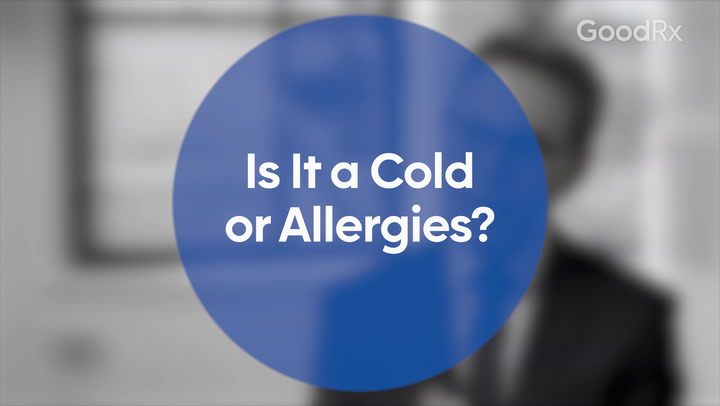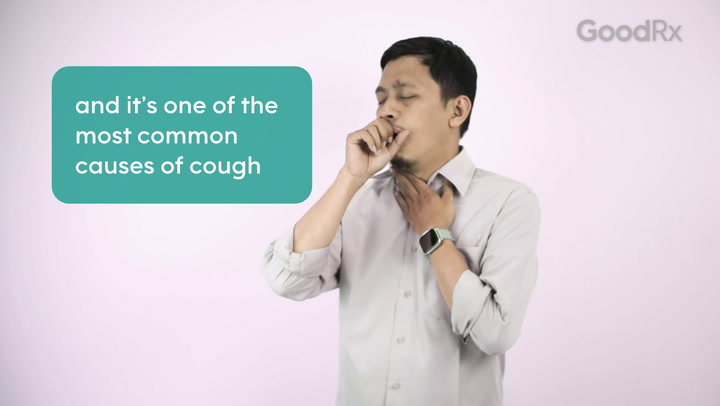
How to Get Rid of a Cold Fast: 9 Home Remedies to Try
Key takeaways:
Colds are so common that most people will have at least one cold every year. Colds usually resolve on their own and aren’t serious.
There’s no cure for the common cold, but there are many treatments that can help to improve your cold symptoms.
Antibiotics won’t help you recover faster from a cold. But other treatments, like zinc, may help shorten your cold symptoms by a day or so.
Table of contents

The common cold is probably the most frequent infection that people get. In fact, most adults have an average of 2 to 3 colds every year — and kids have them even more often.
Fortunately, most colds are mild and resolve on their own. But, they still cause millions of missed work and school days each year. Because there’s no cure for a cold, many people are looking for a quick fix.
Let’s take a closer look at what works for colds and what doesn’t so you can get rid of your cold symptoms quickly.
Search and compare options
What home remedies can help you get rid of a cold?
Because there are more than 200 different viruses that can cause cold symptoms, there isn’t just one treatment for symptoms of the common cold. And there are some that work better than others.
Here’s a look at how nine of the most popular treatments stack up for getting rid of your cold symptoms quickly.
1. Echinacea
Echinacea has been used as a supplement for hundreds of years and across many cultures. It’s frequently used in the United States to stave off or lessen the symptoms of upper respiratory infections. Many studies have been done on the effects of echinacea. But none of the studies have been rigorous enough to say for sure if echinacea works for treating or preventing a cold.
One report did claim some benefit, though. Researchers found echinacea to lower the likelihood of cold infections and the length of cold symptoms. But more data is needed to see if there’s a certain preparation or dose of echinacea that can reduce cold symptoms consistently.
The good news is, echinacea doesn’t seem to have any short-term side effects. So it’s not likely to harm you even if you don’t get much benefit. But it can have interactions with a number of medications. As always, it’s important to check with a healthcare professional before taking any supplement.
2. Zinc
There’s pretty good evidence that zinc helps reduce the severity and duration of a cold. But you have to start taking zinc within 24 hours of first noticing any symptoms. It’s not a cure, but with it, you can expect to feel better about a day sooner on average.
Is it COVID or a cold? See how the symptoms and timeline of COVID-19 compare with the common cold.
Is it OK to give your child cold medications? Here’s what you need to know about cold-medication safety for children.
Could it be a sinus infection? Learn more about the difference between a cold and a sinus infection, and when to get help.
Zinc supplements can come in the form of a tablet, lozenge, or nasal spray. Many of the studies on using zinc to help with cold symptoms specifically looked at zinc lozenges. There may be subtle differences when using different zinc preparations. It’s common for people taking zinc lozenges to report nausea or a bad taste. And zinc nasal sprays have been linked to a loss of smell. So you may want to avoid using those.
Zinc is an essential mineral that’s normally found in the foods we eat. When you have a cold, you may consider eating certain foods that are high in zinc. Dietary sources of zinc include:
Oysters
Seafood
Poultry
Red meat
3. Vitamin C
Vitamin C is one of the most popular supplements in the world. It’s essential for everything from skin structure to immune function. There’s some evidence to suggest that it may shorten the time you have a cold, but not by very much.
It seems to work best when you regularly take vitamin C and not just at the start of your symptoms. But, it probably won’t keep you from getting a cold.
Most studies looked at taking doses of vitamin C from 1,000 mg to 2,000 mg. Large doses of vitamin C (greater than 2,000 mg) can cause stomach upset.
Since vitamin C has a reasonable price, is easy to find and is fairly well tolerated, some experts believe the benefit may be worth the small risk.
4. Hydration
You may have heard that you need to “drink plenty of fluids'' when fighting a cold. But surprisingly, there’s no scientific data to support that advice. It’s important to make sure you replace fluids that you lose due to urine, diarrhea, fever, or vomiting. But beyond that, there may be no benefit.
Overhydrating, or drinking too much fluid when treating a cold can lead to its own complications. Low sodium level in the blood (hyponatremia) can be a complication of overhydration (water intoxication). And it can be serious and life-threatening.
5. Saltwater gargle
A sore throat often goes along with the common cold. A saltwater gargle can help your symptoms. Gargling with salt water when you have a cold may help to:
Reduce throat pain
Loosen mucus in the throat
Reduce throat inflammation
It may also reduce the amount of virus or bacteria in the throat as well. One small study found that people who gargled with salt water 3 times a day were 30% less likely to develop an upper respiratory tract infection (URTI).
Along with providing quick relief for sore throat, gargling may be a safe and inexpensive way to reduce the risk of getting a URTI.
6. Tea with honey
Tea with honey is one of the most controversial remedies for getting rid of cold symptoms fast. Some experts are skeptical. But others report tea and honey may help to:
Improve sleep
Reduce mucus
Improve immune function
Unlike many cold remedies, tea with honey is safe, and well tolerated for most people. The main exception is that honey should never be given to children younger than 1 year due to the risk of infant botulism.
Given the cost, safety, and potential benefit, a cup of tea with honey may be a great natural remedy for your cold symptoms.
7. Probiotics
Many clinical studies have looked at whether taking probiotics can improve immunity. Almost all have shown that probiotics can prevent, shorten, or lessen the symptoms of the common cold. Probiotics had a positive effect in terms of missed workdays, overall discomfort, and need for other medications.
The key to using probiotics is that you have to start taking them before you catch a cold. It takes days to weeks for probiotics to do their job in your gut and improve your immunity.
8. Nasal rinses
You can do nasal rinses with a spray or neti pot. Studies are mixed, but nasal rinses that use saline may offer some improvement in cold symptoms. Nasal rinses may help to:
Reduce the amount of mucus
Thin nasal mucus
Reduce the amount of virus present in nasal secretions
Decrease the need for decongestant use
It’s important to follow the instructions when using a nasal rinse. Never use tap or spring water when making your own rinse. Make sure you use sterile water and a sterile container.
9. Over-the-counter (OTC) pain relievers and fever reducers
The hallmarks of the common cold are aches, sore throat, and low-grade fever. Pain relievers and fever reducers won’t keep you from catching a cold. And they won’t make it go away any faster. But they can definitely help you feel better while you have a cold.
You shouldn’t use aspirin to treat fever or pain in children due to the risk of Reye’s syndrome.
What cold remedies don’t work?
Data is often mixed on cold remedies, and experts argue over which treatments have proven benefit for cold symptoms. But there’s one thing that all healthcare professionals agree on: Antibiotics won’t treat your cold. As a matter of fact, antibiotics can cause much more harm than good when they aren’t needed.
When should you get medical care?
Most colds can be safely treated at home. But there are times when you need to get medical attention. You need to reach out to a healthcare professional if:
Symptoms start to improve but then get worse.
Symptoms last more than 10 days without improvement.
You have a fever that lasts longer than 3 to 4 days.
You have difficulty breathing.
You have symptoms of dehydration.
You have other medical conditions that are getting worse.
Frequently asked questions
It depends on your symptoms. There are many different OTC (nonprescription) cold medications to choose from. Different medicines can help with different symptoms like fever, aches, cough, congestion, and runny nose.
There are typically three stages to a cold: incubation, active symptoms, and recovery. The first stage is incubation, when you’ve been exposed to a virus — but you don’t have any symptoms yet. Incubation usually takes 1 to 3 days.
After incubation, symptoms typically peak in the next couple of days. This is when you’re most likely to be contagious. Most people recover in less than a week, though it’s possible for some symptoms to linger.
No, there’s no way to cure a cold overnight. But take heart: For many people, cold symptoms peak within 2 to 3 days, then start to get better.
The bottom line
Colds are a common problem that most people will face at least once every year. Although they don’t usually cause serious illness, the symptoms can leave you looking for quick relief.
The good news is there are some OTC and home remedies that may reduce your symptoms and help you recover a little faster. If you have severe or worsening cold symptoms that don’t seem to go away, make sure to reach out to a healthcare professional.
Why trust our experts?



References
Ahrén, I. L., et al. (2020). Fewer community-acquired colds with daily consumption of Lactiplantibacillus plantarum HEAL9 and Lacticaseibacillus paracasei 8700:2. A randomized, placebo-controlled clinical trial. The Journal of Nutrition.
American Lung Association. (2024). Facts about the common cold.
Bachert, C., et al. (2005). Aspirin compared with acetaminophen in the treatment of fever and other symptoms of upper respiratory tract infection in adults: A multicenter, randomized, double-blind, double-dummy, placebo-controlled, parallel-group, single-dose, 6-hour dose-ranging study. Clinical Therapeutics.
Centers for Disease Control and Prevention. (n.d.). Preventing and managing common cold.
Centers for Disease Control and Prevention. (2024). About common cold.
Centers for Disease Control and Prevention. (2024). Botulism prevention.
Centers for Disease Control and Prevention. (2024). Manage common cold.
Darbandi, A., et al. (2021). The effect of probiotics on respiratory tract infection with special emphasis on COVID-19: Systemic review 2010-20. International Journal of Infectious Diseases.
Davidson, T. M., et al. (2010). The Bradford Hill criteria and zinc-induced anosmia: A causality analysis. Archives of Otolaryngology — Head and Neck Surgery.
Evans, H., et al. (2010). Is honey a well-evidenced alternative to over-the-counter cough medicines? Journal of the Royal Society of Medicine.
Goldman, R. D. (2014). Honey for treatment of cough in children. Canadian Family Physician.
Guppy, M. P. B., et al. (2004). “Drink plenty of fluids”: A systematic review of evidence for this recommendation in acute respiratory infections. BMJ.
Guppy, M. P. B., et al. (2011). Advising patients to increase fluid intake for treating acute respiratory infections. The Cochrane Database of Systematic Reviews.
Hemilä, H., et al. (2017). Zinc acetate lozenges may improve the recovery rate of common cold patients: An individual patient data meta-analysis. Open Forum Infectious Diseases.
Karsch‐Völk, M., et al. (2014). Echinacea for preventing and treating the common cold. Cochrane Database of Systematic Reviews.
King, D., et al. (2015). Saline nasal irrigation for acute upper respiratory tract infections. The Cochrane Database of Systematic Reviews.
MedlinePlus. (2022). Common cold.
MedlinePlus. (2023). Vitamin C.
MedlinePlus. (2024). Vitamin C and colds.
Office of Dietary Supplements. (2022). Zinc: Fact sheet for health professionals. National Institutes of Health.
Satomura, K., et al. (2005). Prevention of upper respiratory tract infections by gargling: A randomized trial. American Journal of Preventive Medicine.
Shah, S. A., et al. (2007). Evaluation of echinacea for the prevention and treatment of the common cold: A meta-analysis. The Lancet Infectious Diseases.
Wang, M. X., et al. (2020). Zinc supplementation reduces common cold duration among healthy adults: A systematic review of randomized controlled trials with micronutrients supplementation. The American Journal of Tropical Medicine and Hygiene.
Zhang, H., et al. (2018). Prospective study of probiotic supplementation results in immune stimulation and improvement of upper respiratory infection rate. Synthetic and Systems Biotechnology.

























